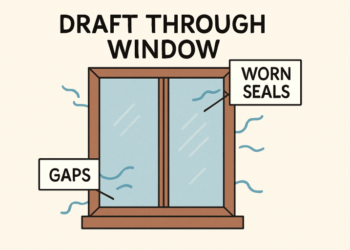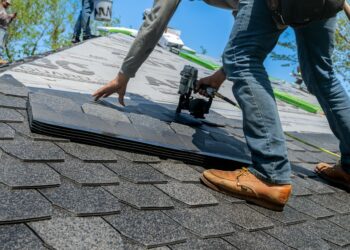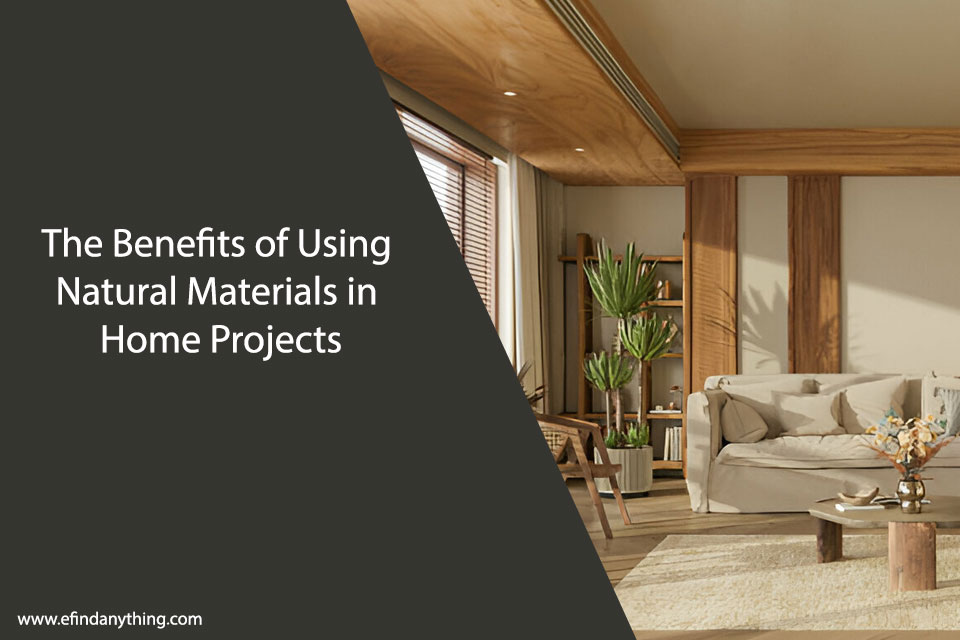
Many homeowners ask: Is linoleum a practical flooring option for modern homes? How does it compare to other materials? Is it sustainable and durable? These frequently asked questions highlight the rising interest in linoleum flooring in the UK. This article answers these queries and explains why linoleum flooring is an increasingly popular choice for homeowners looking for a blend of style, durability, and environmental responsibility.
Understanding Linoleum Flooring
Linoleum, often called “lino,” is a natural flooring solution made from renewable materials such as linseed oil, wood flour, cork dust, and jute backing. Unlike synthetic vinyl, linoleum is biodegradable and free from harmful chemicals, making it an environmentally conscious choice for homeowners. It’s designed for high-traffic areas in both residential and commercial spaces, offering resilience and ease of maintenance.
Key Benefits of Linoleum Flooring
- Eco-Friendly Credentials
Linoleum’s composition of natural materials makes it one of the most sustainable flooring options. It’s recyclable and decomposes without releasing harmful substances into the environment. - Durability
With proper care, linoleum flooring can last between 20 and 40 years, making it a long-term investment for homeowners. Its resilience to foot traffic makes it ideal for busy areas like kitchens and living rooms. - Low Maintenance
Linoleum flooring can be cleaned easily. Regular sweeping and occasional mopping with a damp mop keep it looking fresh, and specialist cleaning products are not needed. - Aesthetics
Linoleum is available in various colours and designs, from bold modern styles to subtle traditional patterns. This versatility allows homeowners to choose a look that fits their interior décor. - Hypoallergenic Qualities
Its antistatic and dust-repellent properties make linoleum great for allergy sufferers or those concerned about indoor air quality.
Common Questions About Linoleum Flooring
Is linoleum water-resistant?
Linoleum is water-resistant but not waterproof. It can handle minor spills but should not be exposed to prolonged moisture. Promptly cleaning up the liquid is key to preserving its condition.
How does linoleum differ from vinyl?
While both materials can look similar, linoleum is made from natural materials, whereas vinyl is synthetic. Linoleum tends to be more eco-friendly, though vinyl may offer greater resistance to water. Each has its advantages depending on the intended use.
Can I install linoleum myself?
Linoleum is available in sheets, tiles, or click-lock planks. While tiles and planks are more DIY-friendly, sheet linoleum often requires professional installation for best results.
The Role of Linoleum Flooring in Sustainable Living
The interest in eco-conscious home improvements continues to grow. Linoleum flooring aligns with this trend, offering a sustainable alternative to synthetic materials. Its natural composition means it contributes less to environmental pollution and supports using renewable resources. Moreover, linoleum’s longevity reduces the need for frequent replacements, further minimising waste.
The UK’s Demand for Sustainable Flooring
According to the Mordor Intelligence report, the UK floor covering market was valued at USD 2.59 billion in 2025 and is projected to grow to USD 3.17 billion by 2030. This growth reflects a clear trend towards sustainable, durable flooring solutions like linoleum. Homeowners are increasingly choosing options that reduce their environmental footprint while enhancing the aesthetic appeal of their homes.
Why Homeowners Are Choosing Linoleum
Several factors make linoleum flooring in UK homes an attractive choice:
- Longevity: A lifespan of decades ensures homeowners benefit from their investment.
- Design Flexibility: The wide range of styles complements modern and traditional interiors.
- Eco-Consciousness: Homeowners are increasingly valuing sustainability, and linoleum meets this demand.
- Comfort Underfoot: Linoleum’s natural softness makes it more comfortable than hard tile or wood and offers some soundproofing benefits.
Installation and Care Tips
Installation: Professional installation, especially with sheet linoleum, is recommended for optimal results. This ensures a seamless look and prevents issues like curling edges or gaps.
Subfloor Preparation: Before installation, the subfloor should be clean, dry, and level. This prevents uneven surfaces and extends the lifespan of the linoleum.
Sealing: Some linoleum options benefit from sealing to protect against stains and minor moisture exposure.
Regular Maintenance: Avoid using harsh chemicals. A pH-neutral cleaner and a soft mop are sufficient. Quickly address any spills to prevent water damage.
When to Consider Linoleum Flooring
Linoleum is particularly suitable for:
- High-Traffic Areas: Kitchens, hallways, and living rooms where durability is essential.
- Eco-Conscious Homes: For homeowners prioritising sustainable materials.
- Budget-Friendly Renovations: Linoleum is generally more affordable than hardwood or stone flooring.
Choosing the Right Supplier
It’s essential to work with a reputable supplier offering various linoleum options. The Flooring Group provides a comprehensive selection of linoleum flooring in UK homes, with products that meet different preferences and requirements.
Conclusion
Linoleum flooring offers homeowners a sustainable, durable, and stylish choice for modern living spaces. Its natural composition, low maintenance needs, and various design options make it a wise investment. As environmental considerations increasingly influence purchasing decisions, linoleum’s appeal grows.











